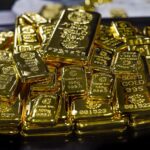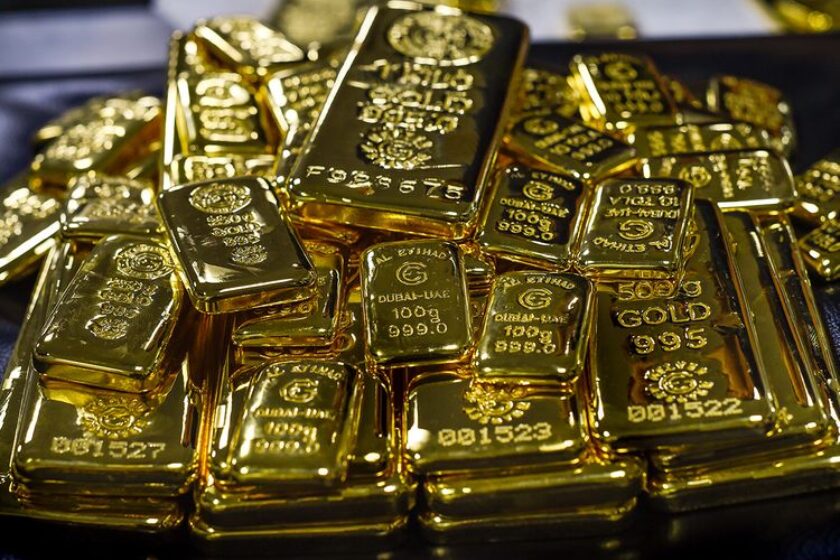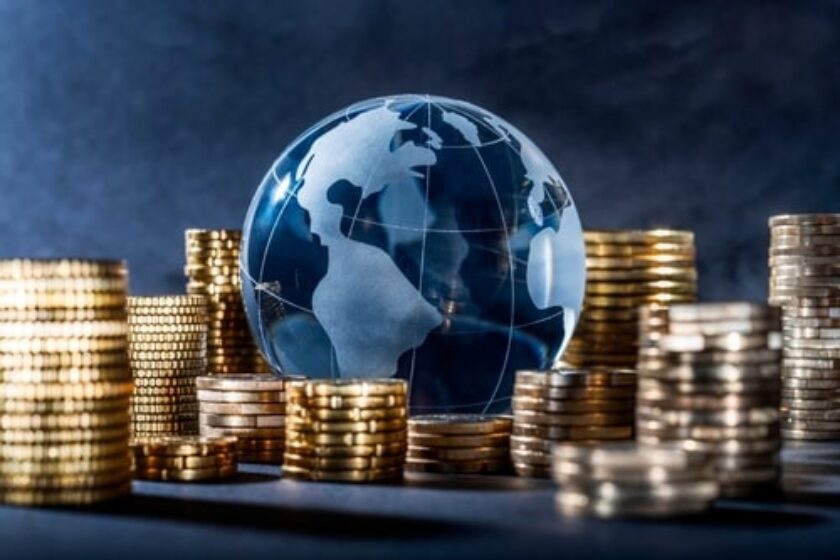The World Gold Council has a plan to make trading more liquid, starting with the $500 billion in gold bars beneath London. Critics say it’ll meet stiff resistance.
For Dubai Multi Commodities Centre (DMCC), its foundation was underpinned by gold.
Conceived to provide the physical and financial infrastructure required to create a hub for the global commodities trade, it wasn’t until Standard Bank London and Dubai Islamic Bank became the first to make gold Sharia-compliant by launching the first and only ground-breaking gold Sukuk, which raised $200 million, the proceeds of which were used to finance the construction of its first commercial towers, namely Gold, Silver and Almas.
With a foundational environment created, the Dubai Gold & Commodities Exchange (DGCX) debuted as one of its subsidiaries in 2005 and, with it, the region’s first commodity derivatives exchange.
With a formally established bourse that not only provided guaranteed settlements, reduced counter-party risk, fully transparent fee structures and access to regional and international liquidity pools, DMCC’s facilities and services – particularly its vault, which was developed in conjunction with Brink’s Global Services – helped to support not just the development of its futures market but that of the physical. Which today includes Sharia Gold, India Gold Quanto, Daily Gold and Physical Gold Futures & Spot Gold Contracts.
Having captured the physical market, DMCC’s next focus is on possibilities for bullion in the digital space.
Research to refining
As a single location that fully services the entire gold value chain, from research and refining to trading and investing, Dubai has risen to become responsible for roughly 25 per cent of global trade. However, this was only made possible, but creating and nurturing the right environment. In a similar way to how China, Indonesia and Uzbekistan remain the largest producers in Asia, with China and India being the largest consumers, it is Singapore and Hong Kong that remain the favored trading centres due to their zero rate tax for bullion and strong rule of law.
Similarly, other centres such as Luxembourg have also remained attractive and competitive by catering to the increasing demand for ESG products by offering Fair Trade bullion through its state savings bank. Akin to other Fair Trade products, BCEE guarantees that for each kilo of gold sold, in addition to the minimum fair wage guaranteed, Fair Trade receives a premium of $2,000, which is directly paid to the community of the Macdesa mine in Southern Peru, where the gold is mined.
As a lesson learned from the regulated economies of least resistance, hopefully the same philosophy will be applied to the UAE’s mint and coin industry, thereby attracting another branch of the gold industry to benefit from the country’s existing verticals.
An epicenter for gold
If I were to mention a second key policy advantage, it would be DMCC’s steadfast commitment to serving its stakeholders by remaining an impartial entity whose sole commitment is to its community and the greater long-term vision of Dubai and the UAE. Driven by its own decree, its duty to provide an optimal environment has led to Dubai becoming an epicenter for the global physical gold ecosystem, connecting mining supply sources from Africa and the former CIS countries with the major demand markets of Asia, Europe, and the US, in a globally centralized timezone that facilitates trading activities around the clock.
An additional practice that has dramatically served Dubai’s gold industry is that of collaboration, most recently illustrated through DGCX’s agreement with FinMet, who will not only bring their wealth of experience but support the rollout of new products and in an advisory capacity to onboard banks and new members seeking greater diversity with their product needs.
Bullion’s place in digital economy
It will be interesting to see how gold translates into the digital economy, in particular blockchain and crypto – with companies including Pax (PAXG) providing an asset-backed token where one token represents one fine troy ounce of a London Good Delivery gold bar, stored in professional vault facilities, perhaps more investors will consider this as an easier and safer way to invest.
Certainly, DMCC Crypto Centre will continue to monitor the market and be ready when opportunity, regulation and demand meet.
In a similar fashion to the development of Dubai’s wider gold industry, the release of our latest bullion coins are still in their infancy, particularly in comparison to the Krugerrand, which has been on the market since 1967 and is by far the world’s most popular 1 oz coin. However, as a store of value, which reflects the extraordinary progress made and forged using only fully-compliant 999.9 24-carat gold, I believe it is just a matter of time before history will repeat itself.
Source: Gulf News




